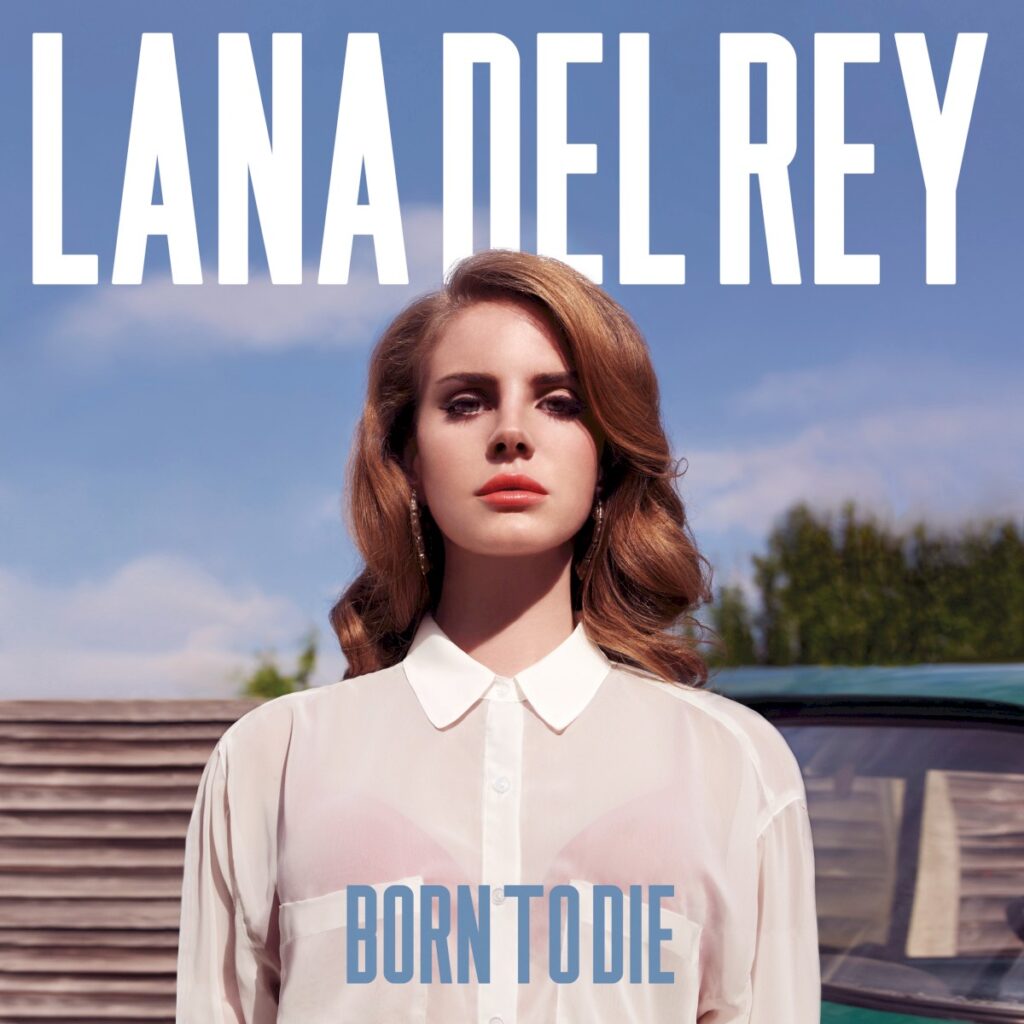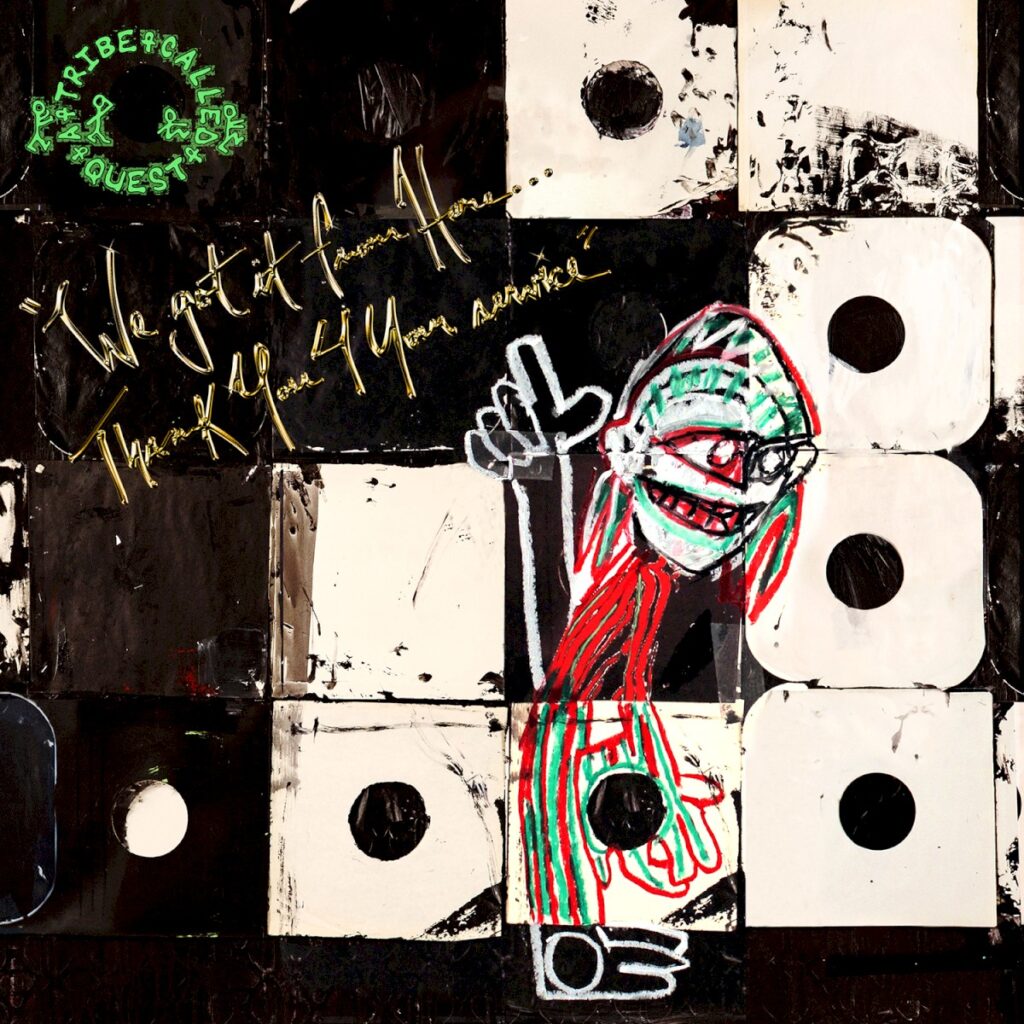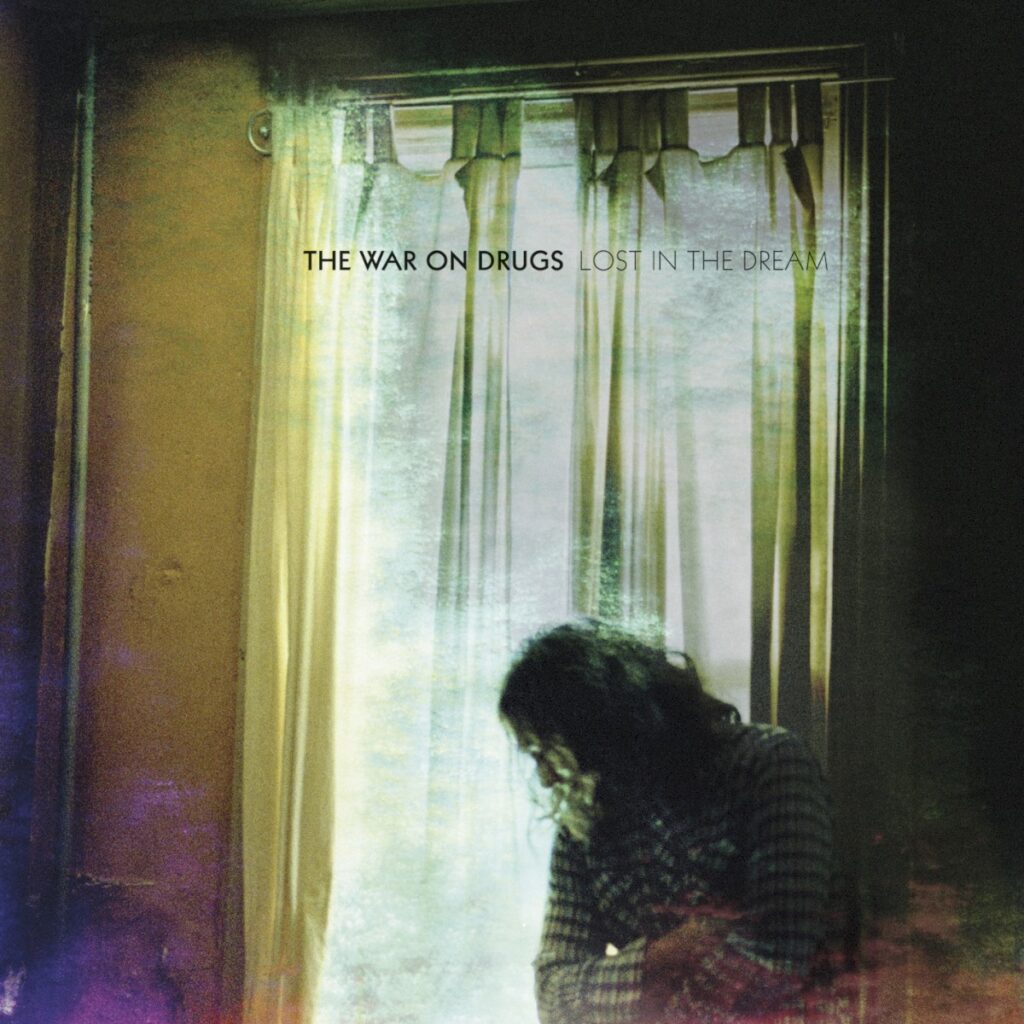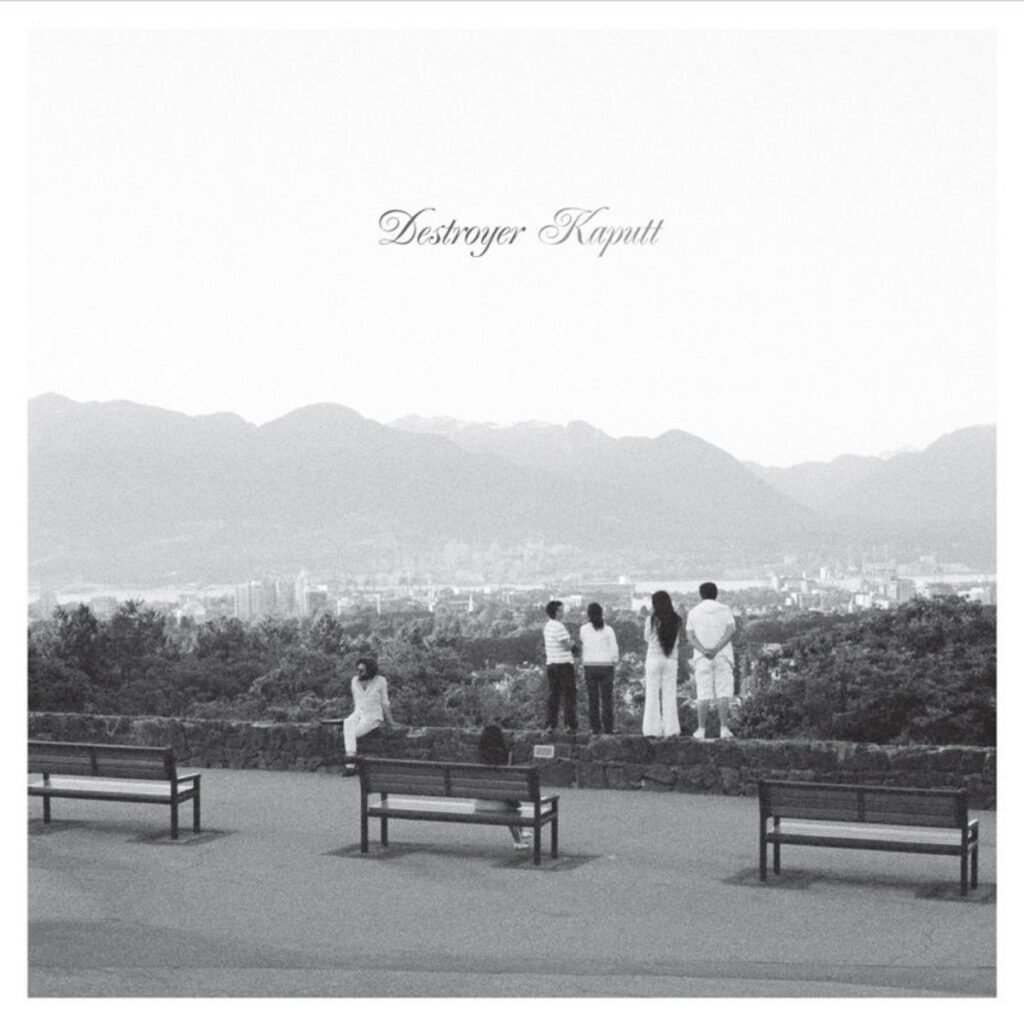45.
Lana Del Rey, ‘Born To Die,’ 2012

Lana Del Rey’s Born To Die marks her first professionally produced studio album. The concept of Born To Die revolves around the dichotomy of love and death, encapsulating the fragility and transient nature of human existence. Del Rey herself describes the record as an “homage to true love and a tribute to living life on the wild side.” The themes of tragic romance and melancholy dominate the lyrical content, often reflecting Del Rey’s own tumultuous past, including her struggles with alcoholism during her younger years. Songs like Born to Die and Video Games capture the fragility of human experience, juxtaposing vivid imagery of romantic escapism with an inherent sense of doom. The album’s exploration of existentialism and the transient nature of life is underscored by the recurrent motif of fatalism, most poignantly expressed in the title track’s repeated assertion, “we were born to die.” Del Rey’s lyrical prowess shines through in Born To Die, where she melds poetic ambiguity with raw emotion to create a vivid tapestry of narratives, portraying a sense of inevitable decline interwoven with fleeting moments of joy and passion. The lyrics depict a world of glitz, glamour, and the underbelly of fame, often blurring the lines between reality and fantasy. This duality is encapsulated in tracks like Off to the Races and Blue Jeans, where love is both an escape and a prison. Video Games epitomizes Del Rey’s lyrical elegance, balancing melancholy with nostalgia. The song’s lyrics, “It’s you, it’s you, it’s all for you, everything I do,” captures an almost devotional love, tinged with a sense of inevitable sadness. Born To Die stands out for its lush orchestration and cinematic quality. The album blends orchestral grandeur with contemporary beats, creating a baroque pop sound that has been credited with pioneering this subgenre in the 21st century. Del Rey’s sultry vocals ride over symphonic melodies and trap-infused beats, creating a unique soundscape that is both haunting and hypnotic. Songs like Summertime Sadness combine dramatic string instruments with modern electronic elements, creating a melancholic symphony that resonates deeply with listeners. Meanwhile, National Anthem and Diet Mountain Dew integrate hip-hop influences, further showcasing the album’s eclectic composition.
44.
Big Thief, ‘U.F.O.F,’ 2019

Big Thief’s album U.F.O.F. showcases an ambitious convergence of themes that span from the earthly to the otherworldly, a fitting endeavor for their first release under the storied indie label 4AD. The album’s title, U.F.O.F., stands for “UFO Friend,” immediately hinting at the supernatural undertones that permeate the work. Adrianne Lenker’s fascination with themes of death, life beyond death, and supernatural power is central to the storytelling. In her words, “A lot of them had this theme of death, and life beyond death, and supernatural power…Extraterrestrials and animals and sort of witchy stuff.” This sense of the unknown and the mystical runs through the album, connecting the tracks into a coherent, if eerie, narrative. Lenker’s lyrical prowess shines in U.F.O.F., evoking literary and vivid imagery that feels almost otherworldly. Her eccentric yet poignant writing style has been compared to the likes of Emily Dickinson, albeit with a modern, ethereal twist. The soundtrack of life, death, and the metaphysical are encapsulated in lines such as those from the title track where she sings of her “UFO friend” and the “best kiss she ever had” being “the flickering of water so clear and so bright.” The album also revisits tracks from Lenker’s 2018 solo album abysskiss, including from and terminal paradise, but enriches them with Big Thief’s signature band dynamics. Lenker’s pen draws the listener into places of solitude and introspection, making each track a meditative experience. On the compositional front, U.F.O.F. is a brilliant marriage of folk, rock, and experimental sounds. The band balances between the loud and quiet in a way that makes the music feel both intimate and expansive simultaneously. From the opening track, Contact, which begins with Lenker’s soft vocalizations and gradually crescendos to a gut-wrenching scream accompanied by a dissonant guitar solo, the band sets a tone that is unpredictable yet coherent. Songs like Cattails come to life with their country-inflected tunes and piano swirls, while tracks such as Century blend wandering baselines with hypnotic chord progressions. The modal harmonies, courtesy of Meek’s guitar work, and Krivchenia’s finely tuned drum fills inject an element of spontaneity into the album.
Switch to another lens
The last sunlight
I don’t need any other friends
The best kiss I ever had is the flickering
Of the water so clear and bright
To leap in, my skin and I could feel the reactionJust like a bad dream you’ll disappear
Another map turns blue
Mirror on mirror
And I imagine you taking me outta here
To deepen our love it isn’t even a fraction
43.
A Tribe Called Quest, ‘We Got It from Here… Thank You 4 Your Service,’ 2016

A Tribe Called Quest’s final album, We Got It from Here… Thank You 4 Your Service, is not only a culmination of ATCQ’s artistic journey but also a poignant tribute to the late Phife Dawg, whose passing earlier that year added a layer of poignance and urgency to the project. At its core, We Got It from Here… serves as both a testament to the influence of ATCQ and a reflection on contemporary societal issues. The album’s title, as mentioned by Q-Tip, was conceived by Phife Dawg but its meaning remains ambiguous, potentially symbolizing a generational handover and acknowledgment of the group’s enduring influence. Thematically, the album boldly tackles topics like racism, political division, and social justice, making it a sociopolitical commentary delivered through a hip-hop lens. The album’s lyrics often reflect personal and collective experiences of the Black community in America, addressing issues with a nuanced approach that blends personal introspection with broader social commentary. Tracks such as The Space Program emphasize the need for unity and progress while addressing systemic inequalities. We the People…. paints a grim picture of societal exclusion and discrimination, resonating particularly in the era of rising alt-right movements and a polarized political climate. The profound relevance of these themes underscores ATCQ’s enduring capability to voice the concerns of marginalized communities. Musically, We Got It from Here… Thank You 4 Your Service retains ATCQ’s signature jazz-inflected beats while incorporating modern production techniques, creating a soundscape that feels both timeless and contemporary. The production places a strong emphasis on the lyrics, allowing the words to be the focal point of the listening experience. The album features an eclectic mix of guest appearances, including artists like André 3000, Kendrick Lamar, Jack White, Elton John, and Kanye West, among others. These collaborations enrich the album, providing diverse sonic textures and highlighting ATCQ’s broad influence across different musical genres. For instance, the track Solid Wall of Sound features a unique blend of Busta Rhymes’ energetic delivery, Elton John’s piano, and Jack White’s guitar, bridging multiple musical worlds seamlessly. We Got It from Here… is not just an album; it is a cultural artifact that captures the zeitgeist of its time while honoring ATCQ’s enduring legacy, musical impact, and thematic relevance.
42.
The War On Drugs, ‘Lost In The Dream,’ 2014

The War on Drugs’ 2014 album Lost in the Dream stands as a monumental work within the American indie rock pantheon, encapsulating an intricate blend of nostalgia, introspection, and existential dread through meticulous production and poignant songwriting. Lost in the Dream primarily explores themes of existential ambivalence and melancholy, addressing Granduciel’s personal struggles with loneliness, depression, emotional turmoil, and the lingering effects of a failed relationship. The album cover, featuring Granduciel peeking through a veiled window, signifies a turn towards a more autobiographical and relatable approach, reflecting his personal journey and introspective mindset. Granduciel’s lyrical introspection is heightened by his use of metaphors and imagery. Songs like An Ocean in Between the Waves and Eyes to the Wind explore themes of memory, identity, and the tension between holding on and letting go. The ambiguity in lyrics like “You may risk it all for the memory” suggests that holding onto past experiences, whether positive or negative, profoundly impacts one’s current emotional state. An inherent romanticism couched in existential contemplation pervades the album. Tracks such as Red Eyes and In Reverse juxtapose a sense of melancholy with moments of triumphant clarity, offering a tapestry of bittersweet reflections. Musically, Lost In The Dream draws heavily from the 1980s rock aesthetic infused with elements of Americana. Influences from Bruce Springsteen, Spacemen 3, and Neil Young are palpable throughout the album. The War On Drugs creates a distinctive sound by blending psychedelia, shoegaze, and American indie rock, resulting in lush, expansive soundscapes. The use of synthesizers, brass sections, steel guitars, pianos, and harmonicas adds layers of complexity to the sound. Tracks such as Burning, with its Springsteen-esque vigor, and In Reverse, embodying a sonic journey with gradual instrumental build-ups, exemplify the band’s ability to craft immersive musical narratives. One of the album’s notable structural characteristics is its avoidance of traditional verse-chorus formats. Instead, songs are created as circular compositions, expanding and intensifying with each iteration. This technique is notably present in An Ocean in Between the Waves, where the track builds layer upon layer, evolving into a complex and dynamic piece of music over its seven-minute runtime.
41.
Destroyer, ‘Kaputt,’ 2011

Kaputt marked a definitive turning point in Destroyer’s career. Before this album, Destroyer’s sound could loosely be categorized within the indie-rock sphere. With Kaputt, Bejar pivoted unapologetically towards the realms of soft rock, synth-pop, and smooth jazz that was unexpected yet immediately engaging. Kaputt stands as an homage to a bygone era, particularly the late 1970s and early 1980s, characterized by its sophisticated pop sound. The title itself suggests a thematic underpinning of disillusionment and an end – reflective of the German word “kaputt,” meaning broken or finished. This laconic approach permeates the entire album, embedding it with layers of meaning and a call-back to a romanticized past. Thematically, Kaputt dives into the melancholic, the surreal, and the absurd. Bejar’s lyrics are replete with pop-culture references, abstract narratives, and introspective musings on love and societal decay. While the album’s sound nostalgically echoes the 1980s, its themes resonate with contemporary sensibilities. Songs like Blue Eyes and Suicide Demo for Kara Walker juxtapose youthful exuberance with discomforting detachment, presenting a conflicted emotional landscape. Bejar’s lyrics oscillate between opaque references and vivid imagery, creating a tapestry that is both enigmatic and inviting. The lyrics often read like fractured stories, forcing listeners to engage and interpret the symbolism on their own terms.
In a marked departure from previous Destroyer albums, Kaputt showcases a new array of sounds. It blends synth-pop, soft rock, and mellow jazz, creating a sonic dreamscape that many describe as an ’80s pastiche. Influences from artists like Roxy Music and Sade are omnipresent, particularly in the brass arrangements and synthesizer usage. The compositions on Kaputt are less concerned with conventional pop structures and more with creating an immersive auditory experience. Songs like Chinatown and the title track Kaputt feature laid-back grooves and intricate arrangements that convey a sense of leisurely sophistication. The album features lush production and intricate arrangements that demand multiple listens to fully appreciate the nuanced details, such as Nicolas Bragg’s funk guitar licks and the gentle trumpet haze-enhancing instrumental breaks. Savage Night At The Opera employs a Peter Hook-esque bass line and an “Enola Gay”-inspired guitar outro, crafting a dynamic indie disco floor-filler. Suicide Demo For Kara Walker, an eight-minute epic, transitions from a folky flute lead into a sprawling, sax-driven disco, replete with Balearic bleeps, presenting one of the album’s high points.
A southern bunkhouse
Blue skies up above
A kind of figure of feminine grace and wit passes for love these days
All that slender-wristed, white, translucent business
Passes for love these days
Much hailed genius passes for love these days